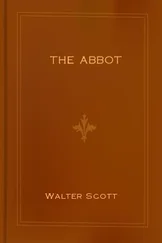Walter Scott - The Betrothed
Здесь есть возможность читать онлайн «Walter Scott - The Betrothed» весь текст электронной книги совершенно бесплатно (целиком полную версию без сокращений). В некоторых случаях можно слушать аудио, скачать через торрент в формате fb2 и присутствует краткое содержание. Год выпуска: 2004, Жанр: Старинная литература, на английском языке. Описание произведения, (предисловие) а так же отзывы посетителей доступны на портале библиотеки ЛибКат.
- Название:The Betrothed
- Автор:
- Жанр:
- Год:2004
- ISBN:нет данных
- Рейтинг книги:3 / 5. Голосов: 1
-
Избранное:Добавить в избранное
- Отзывы:
-
Ваша оценка:
- 60
- 1
- 2
- 3
- 4
- 5
The Betrothed: краткое содержание, описание и аннотация
Предлагаем к чтению аннотацию, описание, краткое содержание или предисловие (зависит от того, что написал сам автор книги «The Betrothed»). Если вы не нашли необходимую информацию о книге — напишите в комментариях, мы постараемся отыскать её.
The Betrothed — читать онлайн бесплатно полную книгу (весь текст) целиком
Ниже представлен текст книги, разбитый по страницам. Система сохранения места последней прочитанной страницы, позволяет с удобством читать онлайн бесплатно книгу «The Betrothed», без необходимости каждый раз заново искать на чём Вы остановились. Поставьте закладку, и сможете в любой момент перейти на страницу, на которой закончили чтение.
Интервал:
Закладка:
Journeying on in this melancholy manner, he at length came in sight of the Battle-bridge; near to which arose, in proud and gloomy strength, the celebrated castle of the Garde Doloureuse. "Here, then," he said—"here, then, I am to await the proud De Lacy. Be it so, in God's name!—he shall know me better ere we part."
So saying, he strode, with long and resolved steps, across the bridge, and ascending a mound which arose on the opposite side at some distance, he gazed for a time upon the scene beneath—the beautiful river, rich with the reflected tints of the western sky— the trees, which were already brightened to the eye, and saddened to the fancy, with the hue of autumn—and the darksome walls and towers of the feudal castle, from which, at times, flashed a glimpse of splendour, as some sentinel's arms caught and gave back a transient ray of the setting sun.
The countenance of the minstrel, which had hitherto been dark and troubled, seemed softened by the quiet of the scene. He threw loose his pilgrim's dress, yet suffering part of its dark folds to hang around him mantle-wise; under which appeared his minstrel's tabard. He took from his side a rote , and striking, from time to time, a "Welsh descant, sung at others a lay, of which we can offer only a few fragments, literally translated from the ancient language in which they were chanted, premising that they are in that excursive symbolical style of poetry, which Taliessin, Llewarch Hen, and other bards, had derived perhaps from the time of the Druids.
"I asked of my harp, 'Who hath injured thy chords?'
And she replied, 'The crooked finger, which I mocked in my tune.'
A blade of silver may be bended—a blade of steel abideth—
Kindness fadeth away, but vengeance endureth.
"The sweet taste of mead passeth from the lips,
But they are long corroded by the juice of wormwood;
The lamb is brought to the shambles, but the wolf rangeth the mountain;
Kindness fadeth away, but vengeance endureth.
"I asked the red-hot iron, when it glimmered on the anvil,
'Wherefore glowest thou longer than the firebrand?'—
'I was born in the dark mine, and the brand in the pleasant greenwood.'
Kindness fadeth away, but vengeance endureth.
"I asked the green oak of the assembly, wherefore its boughs
were dry and seared like the horns of the stag?
And it showed me that a small worm had gnawed its roots.
The boy who remembered the scourge, undid the wicket of the
castle at midnight.
Kindness fadeth away, but vengeance endureth.
"Lightning destroyeth temples, though their spires pierce the clouds;
Storms destroy armadas, though their sails intercept the gale.
He that is in his glory falleth, and that by a contemptible enemy.
Kindness fadeth away, but vengeance endureth."
More of the same wild images were thrown out, each bearing some analogy, however fanciful and remote, to the theme, which occurred like a chorus at the close of each stanza; so that the poetry resembled a piece of music, which, after repeated excursions through fanciful variations, returns ever and anon to the simple melody which is the subject of ornament.
As the minstrel sung, his eyes were fixed on the bridge and its vicinity; but when, near the close of his chant, he raised up his eyes towards the distant towers of the Garde Doloureuse, he saw that the gates were opened, and that there was a mustering of guards and attendants without the barriers, as if some expedition were about to set forth, or some person of importance to appear on the scene. At the same time, glancing his eyes around, he discovered that the landscape, so solitary when he first took his seat on the gray stone from which he overlooked it, was now becoming filled with figures.
During his reverie, several persons, solitary and in groups, men, women, and children, had begun to assemble themselves on both sides of the river, and were loitering there, as if expecting some spectacle. There was also much bustling at the Fleming's mills, which, though at some distance, were also completely under his eye. A procession seemed to be arranging itself there, which soon began to move forward, with pipe and tabor, and various other instruments of music, and soon approached, in regular order, the place where Vidal was seated.
It appeared the business in hand was of a pacific character; for the gray-bearded old men of the little settlement, in their decent russet gowns, came first after the rustic band of music, walking in ranks of three and three, supported by their staves, and regulating the motion of the whole procession by their sober and staid pace. After these fathers of the settlement came Wilkin Flammock, mounted on his mighty war-horse, and in complete armor, save his head, like a vassal prepared to do military service for his lord. After him followed, and in battle rank, the flower of the little colony, consisting of thirty men, well armed and appointed, whose steady march, as well as their clean and glittering armour, showed steadiness and discipline, although they lacked alike the fiery glance of the French soldiery, or the look of dogged defiance which characterized the English, or the wild ecstatic impetuosity of eye which then distinguished the Welsh. The mothers and the maidens of the colony came next; then followed the children, with faces as chubby, and features as serious, and steps as grave as their parents; and last, as a rear-guard, came the youths from fourteen to twenty, armed with light lances, bows, and similar weapons becoming their age.
This procession wheeled around the base of the mound or embankment on which the minstrel was seated; crossed the bridge with the same slow and regular pace, and formed themselves into a double line, facing inwards, as if to receive some person of consequence, or witness some ceremonial. Flammock remained at the extremity of the avenue thus formed by his countrymen, and quietly, yet earnestly, engaged in making arrangements and preparations.
In the meanwhile, stragglers of different countries began to draw together, apparently brought there by mere curiosity, and formed a motley assemblage at the farther end of the bridge, which was that nearest to the castle. Two English peasants passed very near the stone on which Vidal sat—"Wilt thou sing us a song, minstrel," said one of them, "and here is a tester for thee?" throwing into his hat a small silver coin.
"I am under a vow," answered the minstrel, "and may not practise the gay science at present."
"Or you are too proud to play to English churls," said the elder peasant, "for thy tongue smacks of the Norman."
"Keep the coin, nevertheless," said the younger man. "Let the palmer have what the minstrel refuses to earn."
"I pray you reserve your bounty, kind friend," said Vidal, "I need it not;—and tell me of your kindness, instead, what matters are going forward here."
"Why, know you not that we have got our Constable de Lacy again, and that he is to grant solemn investiture to the Flemish weavers of all these fine things Harry of Anjou has given?—Had Edward the Confessor been alive, to give the Netherland knaves their guerdon, it would have been a cast of the gallows-tree. But come, neighbour, we shall lose the show."
So saying, they pressed down the hill. Vidal fixed his eyes on the gates of the distant castle; and the distant waving of banners, and mustering of men on horseback, though imperfectly seen at such a distance, apprized him that one of note was about to set forth at the head of a considerable train of military attendants. Distant flourishes of trumpets, which came faintly yet distinctly on his ear, seemed to attest the same. Presently he perceived, by the dust which began to arise in columns betwixt the castle and the bridge, as well as by the nearer sound of the clarions, that the troop was advancing towards him in procession.
Читать дальшеИнтервал:
Закладка:
Похожие книги на «The Betrothed»
Представляем Вашему вниманию похожие книги на «The Betrothed» списком для выбора. Мы отобрали схожую по названию и смыслу литературу в надежде предоставить читателям больше вариантов отыскать новые, интересные, ещё непрочитанные произведения.
Обсуждение, отзывы о книге «The Betrothed» и просто собственные мнения читателей. Оставьте ваши комментарии, напишите, что Вы думаете о произведении, его смысле или главных героях. Укажите что конкретно понравилось, а что нет, и почему Вы так считаете.





